A few days ago, the American Academy of Pediatrics (AAP), American Academy of Child and Adolescent Psychiatry (AACAP), and Children’s Hospital Association declared a national emergency in children’s mental health, citing the serious toll of the COVID-19 pandemic on top of existing challenges.
Prior to the pandemic, suicide was the second leading cause of death for youths ages 10-24 years. Between March and October 2020, during the longest quarantine period, suspected suicide attempts increased nearly 51% among girls ages 12-17 years, according to the CDC. Mental health-related emergency room visits rose by 24% for children ages 5-11 years and 31% for children ages 12-17 years.
In a statement, Jody Levison-Johnson, president and CEO of Social Current, noted:
“We agree with the AAP and others that behavioral health issues among teens and adolescents have been a significant concern for many years, but have reached previously unseen peaks during the trauma, loss and isolation of the pandemic. Current brain science tells us that relational health and positive childhood experiences mitigate the impact of toxic stress. As we respond to the current crisis, we can build equitable access to mental health services aligned with community needs, along with resources for families that promote strong relationships and resilience. We support the range of policy solutions advocated by the AAP. Now is the time for policymakers to act, partnering with the behavioral health community to tackle these pressing challenges.”
New organization unveiled during SPARK 2021 Conference
Washington, D.C. – The Alliance for Strong Families and Communities and Council on Accreditation (Alliance-COA), which earlier this year announced their intent to merge, today unveiled their new organization, including their name and brand. Social Current will represent a network of thousands of social-sector organizations working in partnership to activate the power and impact of the social sector. Social Current is headquartered in Washington, D.C.
The announcement comes after a nine-month integration process that began in January and follows a year-long exploration and due diligence process overseen by both organizations, which share a long history and vision, with the Alliance serving as one of the original founders of COA in 1977.
“We are incredibly excited to come together as Social Current with a mission to advocate for and implement equitable solutions to society’s toughest challenges through collaboration, innovation, policy, and practice excellence,” noted Social Current’s inaugural president and CEO Jody Levison-Johnson. “At a time in our history where the need to do more and do better have never been so clear, Social Current will ignite change and spark greater impact across the social sector. With Social Current, we will bring together a unified, intrepid, just, and purposeful network that fuels each other’s knowledge, expertise and experience to make real and lasting impact.”
Social Current will engage a broad, multifaceted and larger network of organizations and partners with a diversified range of offerings that contribute to the reach and influence of the human and social services sector. Core service offerings include:
- Community and Networking: Peer exchange groups centered around leadership, fund development, performance excellence and human resources as well as key issue areas such as health, education, and equity.
- Innovation and Collaboration: Unique learning communities that will enable collaboration among like-minded organizations and leaders to enhance their knowledge base, share ideas and strategies, deepen their insights, and build a professional network of colleagues in critical issue areas including developing neuroscience-informed and equity-centered programs, practices, and policies and creating approaches for action to advance organizational equity, diversity and inclusion.
- Advocacy, Policy and Mobilization: Ongoing advocacy, toolkits, policy updates, online campaigns, and workgroups joining forces to advance key social sector policies.
- Accreditation: A rigorous process for organizations that helps ensure infusion of best practice in service delivery, administration and management of programs, supports continuous improvement and often provides regulatory/licensing relief and/or access to governmental funding streams.
- Strategic Vision and Planning Services: With an outcomes-focused lens and an inclusive approach, strategic visioning and planning services that engage staff and key partners to develop values-aligned and innovative approaches that drive mission and impact and center equity in their work.
- Learning: Access to a library offering more than 19,000 scholarly journals, books, and network-contributed materials; webinars and podcasts; self-paced and instructor-led courses; online-communities around a course or series; access to a learning management system with learning solutions and exchange.
- Conferences and Special Events: Access to national conferences featuring sector leaders, including SPARK 2021 (October 12-14, 2021) a virtual learning experience designed to advance equity and inspire individuals and organizations in their efforts to implement innovative practice, policy, and research for the well-being of all people; and Executive Leadership Institute (November 1-5, 2021) an annual event offered in partnership with Loyola University Chicago’s Quinlan School of Business, that equips senior-level managers and executives with the knowledge and skills to oversee day-to-day operations, preparing them for the future to promote greater systems change.
For more information go to www.social-current.org. Follow us on social media:
- Twitter: @SoCurrentNews https://twitter.com/SoCurrentNews
- Facebook: @SocialCurrentNews https://www.facebook.com/SocialCurrentNews/
- LinkedIn: @Social Current https://www.linkedin.com/company/socialcurrent/
Virtual Conference To Take Place October 12-14, 2021 Featuring Bestselling Authors Dr. Ibram X. Kendi, Heather McGhee and Other Nationally-Renowned Speakers
Washington, D.C. – The Alliance for Strong Families and Communities and Council on Accreditation (Alliance-COA) today announced the line-up for their upcoming annual conference, taking place October 12-14, 2021. SPARK 2021 will be a three-day virtual learning experience that will activate the power of the social sector. Registration is now open (early bird registration rates available through September 27) and can be accessed here.
“Fueled by a commitment to advance equity and improve the well-being of all people, we hope this virtual conference will spark and elevate important conversations around some of today’s most vexing challenges and inspire participants to implement innovative practice, policy, and research,” commented Jody Levison-Johnson, president and CEO of Alliance-COA. “We will also be launching our new organization and unveiling our new brand during the opening session, which represents a critical moment in the history of our organizations as we work to create a unified, intrepid, just, and purposeful network so that all people can thrive.”
SPARK 2021 will open on Tuesday, October 12 with Dr. Ibram X. Kendi, bestselling author of How to Be an Antiracist. Dr. Ibram X. Kendi is the Andrew W. Mellon Professor in the Humanities at Boston University, and the founding director of the BU Center for Antiracist Research. He is a contributing writer at The Atlanticand a CBS News racial justice contributor. In 2020, Time magazine named Dr. Kendi one of the 100 most influential people in the world.
The closing ceremony on Thursday, October 14 will feature Heather McGhee, bestselling author of The Sum of Us. A renowned expert on the American economy, Heather McGhee is one of the most brilliant and influential thinkers exploring inequality today. Both her viral TED talk and her instant New York Timesbestseller The Sum of Us reveal the devastating true cost of racism—not just for people of color, but for everyone. Deeply stirring, intelligent, and compassionate, McGhee’s talks offer us an actionable roadmap during one of the most critical—and most troubled—periods in history. McGhee has drafted legislation, testified before Congress, and become a regular contributor on shows like Meet the Press and Real Time with Bill Maher.
Key sessions over the three-day conference will include:
- Intersection of Identities: Using Who You Are to Advance the Work of Equity featuring Charles Montorio-Archer, president and CEO of One Hope United, and author of Everybody Paddle: A Leader’s Blueprint for Creating a Unified Team
- How Internal Power Sharing Can Transform Organizational Culture and Advance Change featuring a panel of social sector leaders from the Children’s Guild Alliance, Villa of Hope and Children & Families First
- What We’ve Learned about Effective Partnership for Addressing Pervasive Racial Disparities featuring key leaders in the collective impact movement from StriveTogether, Built for Zero and Cities United
- Policy Solutions at the Intersection of Child Welfare, Poverty, and Racism featuring a panel discussion with Jerry Milner, director of Family Integrity and Justice Works, Public Knowledge; Brian Samuels, executive director of Chapin Hall; and Dr. Julia Jean-Francois, Co-Director for the Center on Family Life in Brooklyn, NY.
- Jointly Addressing ACEs and Racism: Moving from Theory to Action featuring leaders from Cooperative of Communities, RYSE Center and Minnesota Association for Children’s Mental Health
- Understanding Power Dynamics: The History of Disparities in America featuring Rueben C. Warren, executive director of the National Center for Bioethics in Research and Health Care from Tuskegee University
SPARK 2021’s diamond sponsors are Brown & Brown Insurance of Lehigh Valley and FEI Workforce Resilience. Sponsors for SPARK include: Aramark, Binti, Unite US, United Healthcare, Villa of Hope, and Your Part-Time Controller. Additional sponsors include: Accreditation Guru, Afia, BakerTilley, Datis, Gallagher, Insperity, Lincoln Families, One Hope United, Presence, Truth Collective, Turning Points for Children, and Youth Villages.
Media Notes: The newly merged Alliance for Strong Families and Communities and Council on Accreditation will be announcing its new name and brand during the opening session on October 12, 2021 at 11am EST. Media are invited to attend the full conference free-of-charge. To request access, contact Jennifer Devlin at Jdevlin@alliance1.org.
For more information, to access the full agenda of events, or to register for SPARK 2021 go to link.
###
About the Alliance for Strong Families and Communities and Council on Accreditation (Alliance-COA)
The Alliance-COA and resulting new organization will convene and catalyze a dynamic, inclusive, multifaceted network of human/social services organizations that leverages the collective experience of the field and research to spark a current in the sector and drive continuous evolution and improvement. Our goal is to activate the power of the social sector and create a unified, intrepid, just, and purposeful network that propels our field forward so all people can thrive. The new organization will provide a range of opportunities to actively shape the sector through collaboration, innovation, policy, and practice excellence.
August marks National Immunization Awareness Month and is also the time of year many parents are buying school supplies, scheduling routine sports physicals, and ensuring their children have required vaccinations. Most of the country’s K-12 schools, after-school programs, and colleges are preparing to reopen and return to in-person instruction after more than a year of operating virtually due to the COVID-19 pandemic.
This year, parents of children over the age of 12 have a new task at hand—deciding whether to have their children receive the COVID-19 vaccine and then scheduling those appointments. Yet, many parents, educators, and health care providers continue to have questions about COVID-19 vaccine guidelines for children ages 12 and older.
In this on-demand webinar hosted by Morehouse School of Medicine’s National COVID-19 Resiliency Network, hear leading pediatricians and researchers answer questions from the community, discuss the safety and effectiveness of the COVID-19 vaccine, and explain strategies underway to ensure equitable access to the COVID-19 vaccine.
The webinar speakers include:
- Dr. Marcella Nunez-Smith, senior advisor to the White House COVID-19 Response Team and chair of the Presidential COVID-19 Health Equity Taskforce
- Dr. Lilly Immergluck, professor of microbiology, biochemistry, and immunology at Morehouse School of Medicine
- Dr. Christa Marie Singleton, senior medical advisor at the Centers for Disease Control and Prevention
During the webinar, they discuss:
- The Biden administration’s strategies to ensure equitable access to COVID-19 Vaccines
- COVID-19 Vaccine Guidelines for Children 12 years and older
- Strategies educators and schools can engage in to help build vaccine confidence
Listen to this episode of the podcast More than Health Care: Nonprofits and Health Care Working Together featuring Dr. Dominic Mack of MSM. Learn more about NCRN and the power that partnerships have in the fight for health equity amid the pandemic.
Additional Resources
- COVID-19 Prevention Strategies Most Important for Safe In-Person Learning in K-12 schools
- What are COVID-19 variants and how can you stay safe as they spread? A doctor answers 5 questions
- To find a vaccine near you and other resources for you, your family, and community visit the NCRN website or call 1-877-904-5097
Oct. 12-14
Registration Now Open! Early Bird Discount Available Until Sept. 13.
Designed by the Alliance for Strong Families and Communities and Council on Accreditation (Alliance-COA), SPARK 2021 is a three-day virtual learning experience that will activate the power of the social sector. It also signals an exciting new era for us and the sector, as we will be launching our new organization during the opening session.
Join us for this three-day, virtual learning experience, to convene leaders from across the human services ecosystem to create a unified, intrepid, just, and purposeful network so that all people can thrive.
Fueled by a commitment to advance equity and improve the well-being of all people, we will elevate important conversations around some of today’s most vexing challenges and inspire participants to implement innovative practice, policy, and research.
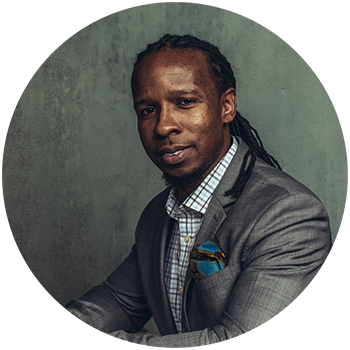
Dr. Ibram X. Kendi
Bestselling Author
How to Be an Antiracist
Andrew W. Mellon Professor in the Humanities
Boston University
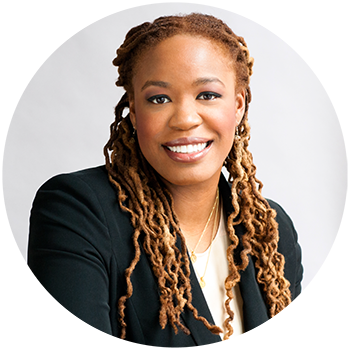
Heather McGhee
Bestselling author
The Sum of Us
While many organizations are looking to start or bolster efforts to advance equity, diversity, and inclusion (EDI), it can be difficult to know where to start. Simply mandating or promoting EDI in the workplace is not enough. To realize the benefits, organizations must treat EDI as any other critical resource and commit to building the right infrastructure to support it.
Organizations are likely to be most successful by creating a multi-year plan to guide their efforts. Advancing equity is a journey, both for people and for organizations.
Progress is made over time and with intentional effort. Having a plan clarifies goals, outlines needed resources, and creates accountability. Consider these tips as you start a new EDI initiative or explore opportunities to improve upon current efforts.
- Assess your personal and organizational readiness:
- Enrolling in training for implicit bias, organizational change management, and/or historical trauma to deepen your understanding
- Consider what employee engagement surveys and other data suggest about adaptability and cultural sensitivity
- Ensure executive sponsorship:
- If you are an executive, make it clear that you are a champion of this initiative, and that EDI is a priority for the organization
- Work toward executive sponsorship by advocating for the benefits of an EDI plan in informal conversations and formal meetings
- Create space and accountability for EDI by considering the resources and business areas involved, including staff time, money, IT, human resources, and professional development
- Assemble a team to execute the work including a taskforce or standing committee
- Commit to a long-term investment in staff time and resources; EDI is a journey
Support Staff with Virtual Workshop
Allocating resources, including staff time, is key for reaching your EDI goals. Staff will need to rethink and adapt their current practices, approaches, and policies. In addition, those who serve on the EDI taskforce or committee will be doing so in addition to their regular job responsibilities.
Make sure staff working to advance equity, diversity, and inclusion have the necessary tools, guidance, and dedicated time to be successful. The Alliance-COA’s Advancing EDI for A More Perfect Union virtual workshop offers valuable information, facilitated discussions, reflection opportunities, and focused worktime to begin developing an organizational action plan.
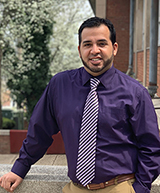
What People are Saying
Edgard Martinez (pictured right), Community Schools – Team Leader and EDI Committee Chair at Children & Families First in Wilmington, Delaware, and his colleagues participated in the June session of the Advancing EDI for A More Perfect Union virtual workshop.
“Attending the Advancing EDI for a More Perfect Union workshop along with several members of our organization’s EDI Committee was a perfect selection for us. We received excellent guidance and tools that allowed us to assess and advance our individual and organization-level EDI journeys, as well as infusing every aspect of our organization with proven EDI practices. Excellent training, expert-level instructors, highly-recommended!”
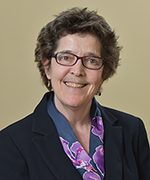
Molly Greenman (pictured left), president and CEO of The Family Partnership in Minneapolis, Minnesota, reflected on her time at the June session and how it compared to other EDI trainings she’s done in the past.
“This workshop was inspiring, challenging, and practical. I have done a lot of anti-racism trainings over the years and this was one of the most comprehensive. Importantly, it focused on what I need to do in our organization as a leader and what I can do personally in my community.”
View full event details and register online to participate.
Episode 39 of the podcast More than Health Care: Nonprofits and Health Care Working Together is now available on the Alliance for Strong Families and Communities’ website and on Apple Podcasts, Google Play, and Spotify. Once a month, a new episode uncovers keys to collaboration and holistic health in pursuit of improved health outcomes and lower costs for all.
Camden Coalition is grounded in what is known as, “Perspective Taking.” In other words, they consider a variety of different perspectives on issues in order to provide, adopt, and achieve a better outcome for individuals.
Victor Murray, director of field building and resources at Camden Coalition explained further, “Our goal is to include as many perspectives as possible—whether that’s a local health department, a health system, community-based organizations, [or] primary care—whomever these institutions or organizations might be that can help us to better understand the population that we’re serving and resources that we need.”
It’s through the power of community partnerships that Camden Coalition started connecting the dots on a micro-patient level, creating a narrative around each patient. By implementing its “Big Tent” approach, it is better equipped to apply a holistic health method and help community members navigate systems and receive better services.
In addition, by knowing the strengths of their community partners, they have been able to leverage those strengths during COVID-19 to better deliver pressing services. One example was through their ”quarantine hotels,” where community members without housing could come and properly quarantine, receive critical care, and get assistance with making connections to family, friends, or other needed services.
Carter Wilson, associate director for the National Center for Complex Health and Social Needs, an initiative of the Camden Coalition, talked through how health systems are a key partnership moving forward from COVID-19, “I think COVID helped clarify for health systems that their work needs to go beyond the traditional health care delivery system. I think that’s clear. But what isn’t clear is how health systems will respond, in part, that health systems have had a hard year. I’m worried that a lot of these institutions will choose to go fast, and to go fast you go alone.”
Wilson goes on to say that as these health systems race forward, he hopes they do so with the perspectives and the partnership of community to create the necessary impact. Because this is often easier said than done, Murray and Wilson close out the episode outlining the investments they see as critical to provide proper complex care to community members, both locally and nationally.
Listen to Victor Murray and Carter Wilson as they explain how shifting to a collaborative infrastructure approach will better impact individuals with complex needs in Episode 39 of the More than Health Care Podcast available through the Alliance website or subscribe on the Apple Podcast, Google Play, or Spotify apps.
About the Podcast
While many are realizing that collaboration and holistic approaches are the solution, the health care and human services sectors are struggling to find the right formula to realize the full potential. The More than Health Care podcast is designed to help organizations overcome barriers to partnerships resulting from cultural differences, financial pressures, and rules and regulations.
In addition to showcasing inspiring examples of integration from across the country, featured experts will expose the myths, misconceptions, and shortcomings of efforts to address the social determinants of health through collaboration across sectors.
This podcast is presented by the Alliance for Strong Families and Communities-Council on Accreditation, Beech Acres Parenting Center, and KVC Health Systems. Host Jill Huynh, vice president of new business development at Beech Acres, and producer Erin Keltner, vice president of clinical services for KVC West Virginia, work at the intersection of health and human services, bringing the expertise and practical experience to uncover key takeaways for improving health care and human services integration.
Subscribe on Apple Podcasts, Google Play, or Spotify.
°
Learn more about the Alliance’s efforts to improve population health and well-being.
Along with the development and board approval of its new vision, mission, and core values, the Alliance-COA team continues to make significant progress on a wide range of integration objectives designed to fuel the success of its newly integrated organization, as it awaits final approval from the office of the New York State attorney general.
Other critical work underway includes efforts by cross-functional teams to finalize core product and service offerings; engage partners in developing the policy agenda; optimize the new organization’s operational structure; finalize the new identity and branding; and plan the virtual learning experience, Alliance-COA SPARK, to be held Oct. 12-14.
Focused on Alliance-COA’s commitment to advance equity, SPARK is a virtual learning experience designed to elevate important conversations around some of the most vexing challenges we face and inspire individuals and organizations in their efforts to implement innovative practice, policy, and research for the improved well-being of all people.
By featuring compelling headliners and leveraging established and validated knowledge and novel thinking that disrupts the status quo, SPARK will enable participants to effectively address the most persistent barriers to effective practice, leadership, and change. Registration and additional details will be available soon. Learn more and plan to join us for this exciting and inspiring event.
About the Newly Merged Alliance for Strong Families and Communities and Council on Accreditation
The Alliance-COA and resulting new organization will convene and catalyze a dynamic, inclusive, multifaceted network of human/social services organizations that leverages the collective experience of the field and research to spark a current in the sector and drive continuous evolution and improvement. Our goal is to activate the power of the social sector and create a unified, intrepid, just, and purposeful network that propels our field forward so all people can thrive. The new organization will provide a range of opportunities to actively shape the sector through policy, advocacy, knowledge exchange, certification, accreditation, and ongoing iterative and reflective connections.
Due to the racial disparities that have come to light because of the COVID-19 pandemic and racial justice protests, the Alliance for Strong Families and Communities and other major organizations across the country have crafted and signed a Nonprofit Racial Justice Statement. These 47 organizations have come together to lay out principles and values to guide individual and collective efforts to advance equity and justice across our country.
Read the full statement for more details.
For more opportunities to take action and voice sector concerns, visit the Alliance-COA Policy Action Center.
Statement of Guiding Principles to Advance Racial Equity and Justice
As leaders who are committed to equity and justice, as mission-focused organizations who are stewards of the public trust, and as a nonprofit sector with far-reaching impact on the national economy, the undersigned are committed to advancing racial justice and equity in all areas of civic and community life. We are deeply moved by the stark racial injustice that the intersecting crises of the COVID-19 pandemic and policy violence toward people of color have once again revealed — racial injustice that is intertwined with America’s past and its present. The racial and ethnic disparities that persist across economic, education, healthcare, criminal justice, and other sectors of society make clear that systemic racism continues to undermine the foundations of well-being for communities of color by denying access to opportunity and making it more difficult to secure jobs, housing, healthcare, education, nutrition, and equal treatment under law.
Faced with this moment of national urgency and entrusted by communities to lead in crisis, we affirm and commit to utilizing the following principles and values as a guide in our individual and collective efforts to advance equity and justice:
Read the principles and values here.
This statement, originally published in September 2020, has been updated with additional endorsing organizations.
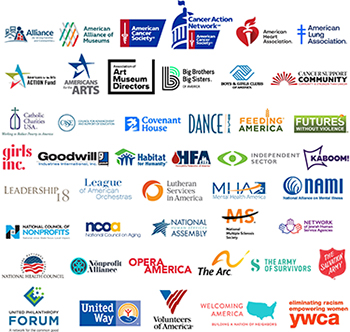
Due to the racial disparities that have come to light because of the COVID-19 pandemic and racial justice protests, the Alliance for Strong Families and Communities and other major organizations across the country have crafted and signed a Nonprofit Racial Justice Statement. These 47 organizations have come together to lay out principles and values to guide individual and collective efforts to advance equity and justice across our country.
Read the full statement for more details.
For more opportunities to take action and voice sector concerns, visit the Alliance’s Policy Action Center.
Statement of Guiding Principles to Advance Racial Equity and Justice
As leaders who are committed to equity and justice, as mission-focused organizations who are stewards of the public trust, and as a nonprofit sector with far-reaching impact on the national economy, the undersigned are committed to advancing racial justice and equity in all areas of civic and community life. We are deeply moved by the stark racial injustice that the intersecting crises of the COVID-19 pandemic and policy violence toward people of color have once again revealed — racial injustice that is intertwined with America’s past and its present. The racial and ethnic disparities that persist across economic, education, healthcare, criminal justice, and other sectors of society make clear that systemic racism continues to undermine the foundations of well-being for communities of color by denying access to opportunity and making it more difficult to secure jobs, housing, healthcare, education, nutrition, and equal treatment under law.
Faced with this moment of national urgency and entrusted by communities to lead in crisis, we affirm and commit to utilizing the following principles and values as a guide in our individual and collective efforts to advance equity and justice:
Read the principles and values here.
This statement, originally published in September 2020, has been updated with additional endorsing organizations.
